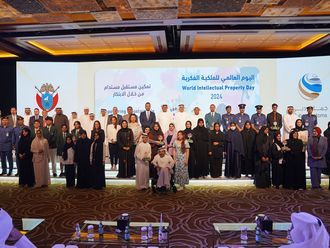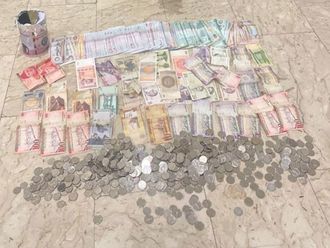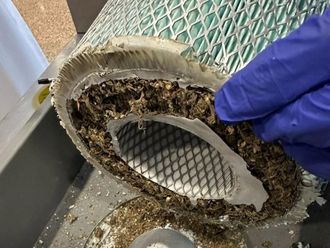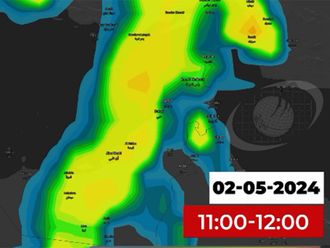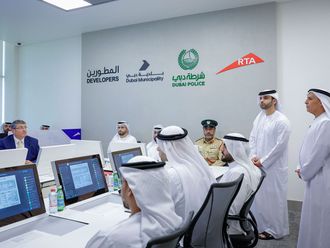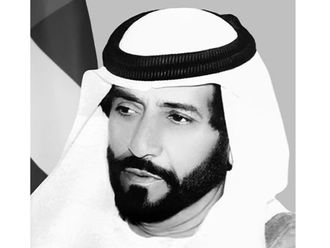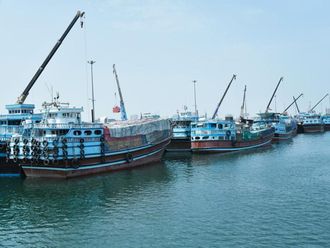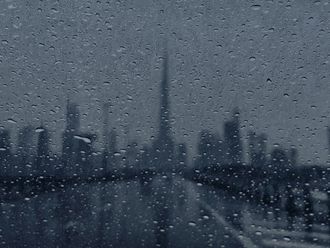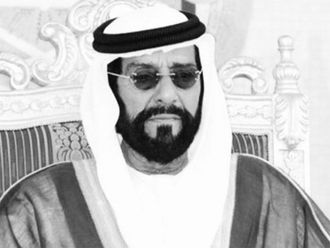Abu Dhabi: An Iranian businessman fled the UAE after his alleged business links with the Iranian Revolutionary Guard Corps (IRGC), banned by UN Security Council resolutions, came to light, official sources told Gulf News.
"Shahram Abdullah Zadeh was arrested and questioned in the UAE over business relations with the Iranian Revolutionary Guard Corps in violation of the United Nations Security Council Resolutions 1737 and 1747," a source familiar with the case said on condition of anonymity.
Abdullah Zadeh, the source added, used his Dubai-based businesses to enter into deals with the IRGC, especially in the oil sector.
"Abdullah Zadeh backs the Iranian Revolutionary Guard Corps and signed deals with them in oil investments. He set up a company in Dubai and signed contracts with the Oriental Oil Company, affiliated to the IRGC and owned by Morteza Rezaie, deputy commander of the IRGC," the source said.
Local operations frozen
Abdullah Zadeh's UAE operations with apparent links to the IRGC were immediately frozen, the source added.
He was detained for two months in 2008 and released after having his Iranian passport withheld. No official charges were issued against him.
"Abdullah Zadeh sneaked out of the country illegally last year and is now travelling on a Czech passport," added the source.
A source in Dubai, familiar with his business, said he had acquired the Czech passport after marrying a Czech woman. Interpol has requested the UAE authorities to arrest Abdullah Zadeh over commercial disputes with Iranian companies.
A former chief executive of Dubai-based developer Al Fajer Properties, he was convicted in a Dubai court in February on charges of stealing the real estate company's database and an attempt to tarnish the company's reputation.
Abdullah Zadeh had been managing his family's small two-star hotel that mainly catered to Iranian business visitors before he went into the real estate business in 2000.
UN Security Council resolutions 1737 and 1747 place economic sanctions on Iran and prohibit UN member states from supplying Iran with any material or technology that might contribute to nuclear weapons development.
The resolutions also call on member states to freeze the assets of particular individuals and entities with ties with Iran's nuclear programme, including the IRGC and its affiliates.
Other criminal cases
The IRGC is believed by the West to be taking the lead in Iran's nuclear programme, and its influence in Iran's political and econ-omic spheres has grown significantlyrecently.
Sources said Abdullah Zadeh also had links with Al Mustad'afeen (the oppressed), an investment arm of the IRGC.
The source added that UAE authorities had information implicating Abdullah Zadeh in other criminal activities concerning real estate bribery and corruption, irrelevant to the state security suspicions.
Embassy's stand
Hussain Haider, a spokesman for the Iranian embassy in Abu Dhabi, said: "The embassy has no information about his whereabouts or his alleged links with the Iranian Revolutionary Guard Corps."
His lawyer, Salem Al Sha'ali, declined to comment on the developments and an email to Abdullah Zadeh was not returned.
Iran has been at the centre of an international dispute over its nuclear plan. The US and its Western allies accuse Iran of secretly developing nuclear weapons under the disguise of a civilian programme.
On June 9, the United Nations Security Council agreed on a fourth round of sanctions against Iran for its alleged attempt to build nuclear weapons.
Iran has denied the accusation and stressed that its nuclear programme is only meant for peaceful purposes.
A nuclear deal was signed by Iran, Turkey and Brazil on May 17. Under it, Iran would ship 1,200 kilos of its low-enriched uranium to Turkey to be exchanged for 120 kilos of 20-per-cent-enriched nuclear fuel for the Tehran research reactor, which produces radioisotopes for cancer treatment.


